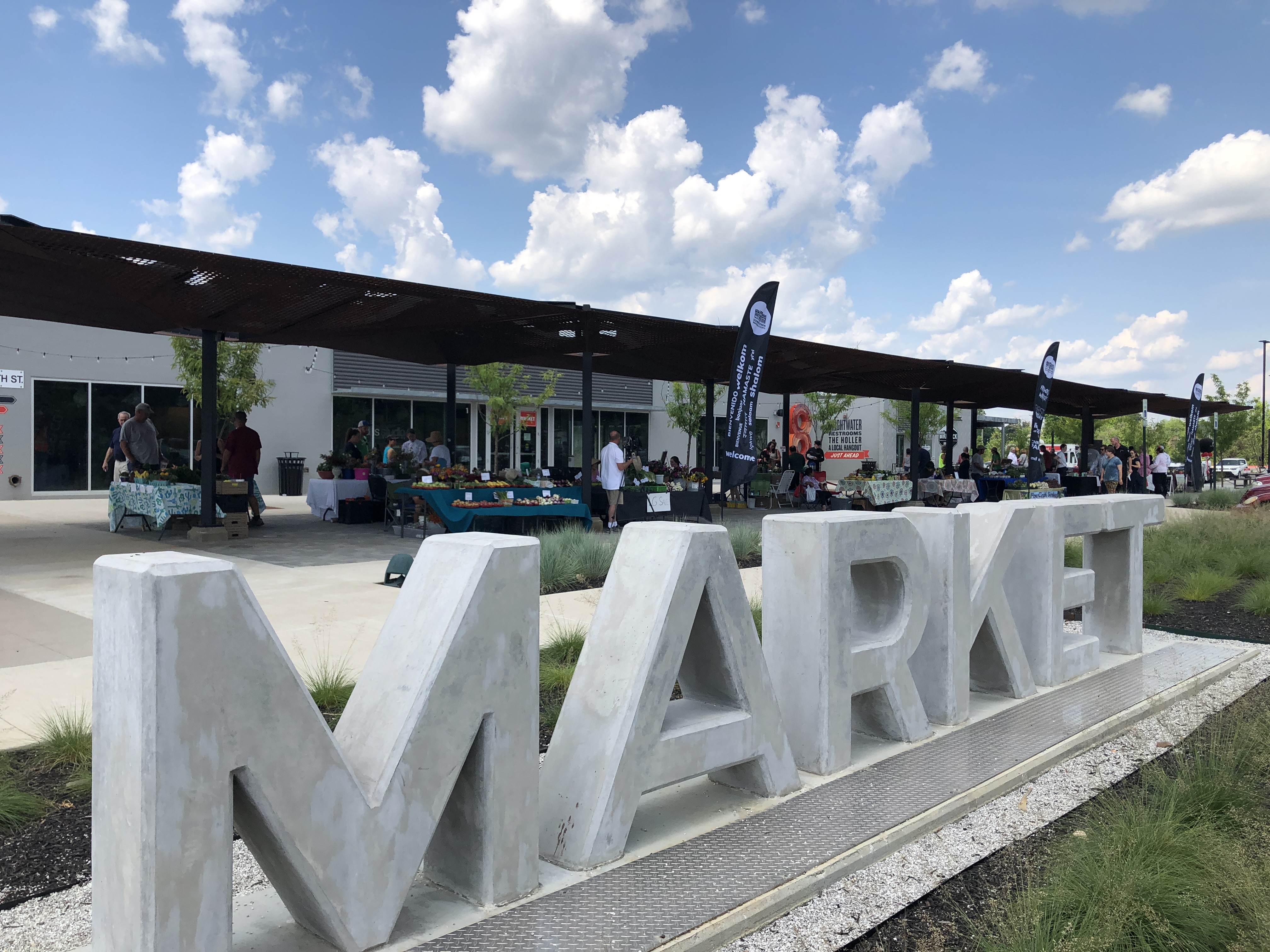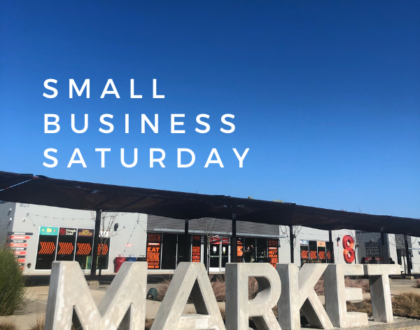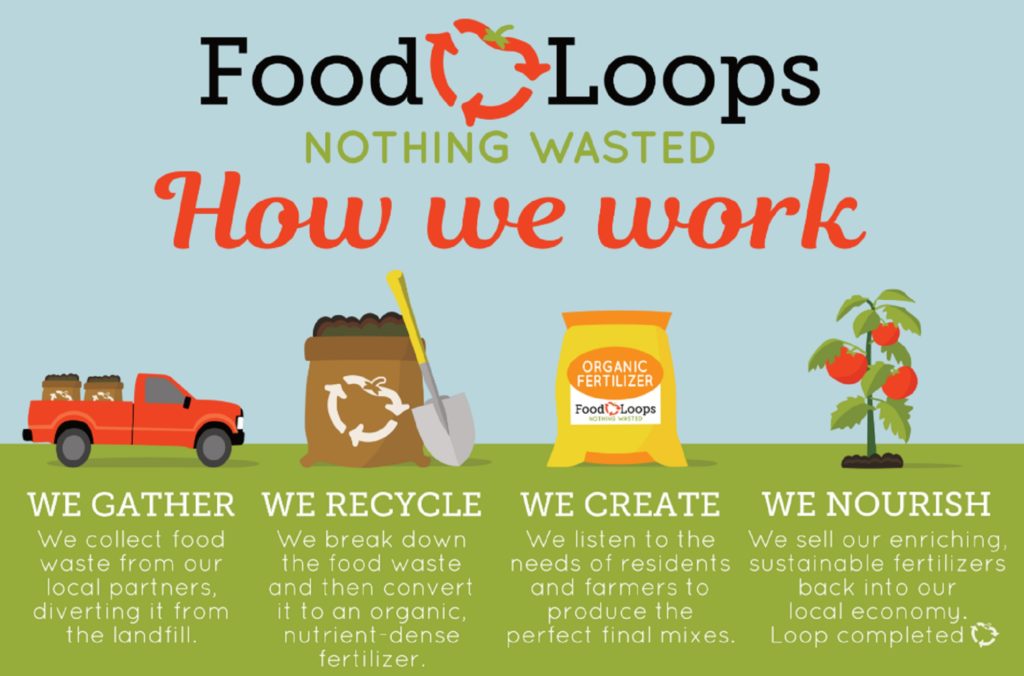8th Street Market and Brightwater Partner with Food Loops on Zero Waste Initiative

The 8th Street Market and Brightwater: A Center for the Study of Food have partnered with Food Loops to launch a zero waste initiative, which aims to make sure that when it comes to everything 8th Street, nothing is wasted.
Sustainability is important to the businesses that comprise the market, which is a large part of what made the partnership possible. Several retailers use compostable products already, but the relationship with Food Loops is introducing another layer to the market’s waste-free future.
Food Loops stands for sustainability in every sense, by partnering with businesses to work towards long-term solutions to a growing problem: Food waste.
“About 80,000 tons of food end up in a landfill every year in Northwest Arkansas alone,” said Tom Rohr, the founder of Food Loops. “And so part of our long-term goal is to provide a total solution to that issue by closing the food loop.”
Representatives from Brightwater said the school and Food Loops share a mission in educating not only students, but all of Northwest Arkansas, about the scale of the problem in food waste.
“When students begin their studies at Brightwater, one of the first classes they are required to take is a food systems class, where they are given a general overview of the food system—including the sobering statistics on food waste,” said Jessie Wagner, the business development manager at Brightwater. “Students come to understand the gravity of the situation, and how much power they have as future culinary professionals to make a difference in reducing food waste.”
Rohr said there’s more to it than simply affecting one single aspect of food production—the closing of the loop must be both sustainable and truly cyclical, which is why Food Loops has a model it hopes can see success.
“First, we gather the food from commercial customers, who place food waste in a special bin,” Rohr said. “Then through our composting process we break down the food waste, converting it into an organic fertilizer, which we then sell back into the local economy.”
Rohr said the completion of the food loop is especially meaningful because of the nutrient-dense fertilizer created from food waste—which is used to grow more food, right here at home.
8th Street Market representatives said they were excited about the partnership, as it presented yet another avenue for furthering the market’s goal of becoming a sustainable force in the community.
“The 8th Street Market has been committed to driving community-centric culinary experiences since it began, and this partnership with Food Loops fits our aim: Giving back to the community through food in new ways,” said Denise Hanley, the property manager of 8th Street Market.
Implementing the food waste program at 8th Street Market began with the installation of red bins that tenants may use specifically for food waste, which will eventually be composted and then turned into a fertilizer.
Market tenants are on board to move toward a sustainable 8th Street Market. Rohr said that with a little help, a small change can become a big one over time.
Food Loops and the 8th Street Market began collecting food waste for recycling Aug. 20th.
Recommended Posts

South Market’s Newest Merchant, 888 Hashery
January 21, 2021

Support our Merchants This Small Business Saturday
November 25, 2020

8th Street Market’s Summertime Guide
August 04, 2020
